 As new media continues to challenge the traditional means of delivering music, video and other digital content, copyright lawyers can expect to get rich in the legal fall out.
As new media continues to challenge the traditional means of delivering music, video and other digital content, copyright lawyers can expect to get rich in the legal fall out.
Universal are the latest media group to get on the blower to their legal boys, filing a case against the social networking site, MySpace.com.
Universal claims that MySpace, “encourages, facilitates and participates in the unauthorised reproduction, adaptation, distribution and public performance,” and is seeking unspecified damages, including up to $150,000 for each unauthorised music song or video uploaded on to the Website.
MySpace’s botty-covering tactic of making users agree to grant the Website a license to publish uploaded content isn’t washing with the Universal legal team, who insist that they have no such authority over works they don’t own.
“A willing partner in theft”
The complaint, filed at the US District Court, claims that “MySpace is a willing partner in that theft,” observing that most of the media slapped up its pages aren’t generated by users, but purloined from copyright owners.
MySpace hit back in a statement, insisting that they are in full compliance with copyright laws:
 “We have been keeping UMG closely apprised of our industry-leading efforts to protect creators’ rights, and it’s unfortunate they decided to file this unnecessary and meritless litigation,” the statement said.
“We have been keeping UMG closely apprised of our industry-leading efforts to protect creators’ rights, and it’s unfortunate they decided to file this unnecessary and meritless litigation,” the statement said.
“We provide users with tools to share their own work – we do not induce, encourage, or condone copyright violation in any way.”
Universal were having none of it, claiming that their, “music and videos play a key role in building the communities that have created hundreds of millions of dollars of value for the owners of MySpace.”
“Our goal is not to inhibit the creation of these communities, but to ensure that our rights and those of our artists are recognised,” the statement added.
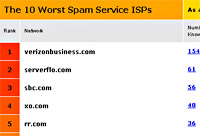 Just over nine out of every 10 e-mails sent worldwide are junk, with a “spam tsunami” flooding inboxes with relentless junk advertising.
Just over nine out of every 10 e-mails sent worldwide are junk, with a “spam tsunami” flooding inboxes with relentless junk advertising. Because each hijacked PC only sends out a relatively small amount of spam, they’re not detected by anti-spam networks and thus avoid being blacklisted on industry spamlists.
Because each hijacked PC only sends out a relatively small amount of spam, they’re not detected by anti-spam networks and thus avoid being blacklisted on industry spamlists.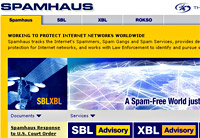 Spamhaus blames much of the problem on ISP’s who either fail to stop the spammers or do nothing to stop them through mismanagement or good old fashioned corporate greed.
Spamhaus blames much of the problem on ISP’s who either fail to stop the spammers or do nothing to stop them through mismanagement or good old fashioned corporate greed. The UK first case of Web-rage to go through the courts has reached sentencing.
The UK first case of Web-rage to go through the courts has reached sentencing. When Jones opened the door of his house – with a knife of his own, he was severely attacked.
When Jones opened the door of his house – with a knife of his own, he was severely attacked. The BBC is expanding its distribution with Orange to take its international news service, BBC World, to Orange mobile phones in eight countries.
The BBC is expanding its distribution with Orange to take its international news service, BBC World, to Orange mobile phones in eight countries.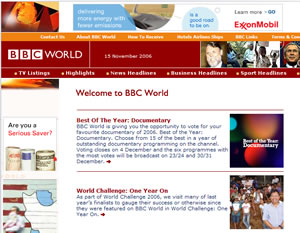 BBC World is held within the commercial arm of the BBC, so Orange are paying the BBC for the privilege of showing it to their subscribers. Gerry wouldn’t give specific details of deal, but we did learn that they don’t do deals on the number of streams that are watched.
BBC World is held within the commercial arm of the BBC, so Orange are paying the BBC for the privilege of showing it to their subscribers. Gerry wouldn’t give specific details of deal, but we did learn that they don’t do deals on the number of streams that are watched.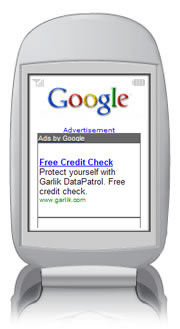 Google chief executive, Eric Schmidt, has chatted to Reuters about his thoughts on mobile phones, and how their ownership and usage should be free, supported of course by advertising. In his words “It just makes sense that subsidies should increase” as advertising rises on mobile phones.
Google chief executive, Eric Schmidt, has chatted to Reuters about his thoughts on mobile phones, and how their ownership and usage should be free, supported of course by advertising. In his words “It just makes sense that subsidies should increase” as advertising rises on mobile phones. Microsoft is giving the Universal Music Group (UMG) a per-unit fee for each Zune that they sell, in addition to the money that they’ll make out sell music tracks on it too.
Microsoft is giving the Universal Music Group (UMG) a per-unit fee for each Zune that they sell, in addition to the money that they’ll make out sell music tracks on it too.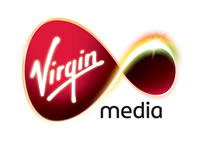 ntl are to re-brand as Virgin Media during the first quarter of 2007.
ntl are to re-brand as Virgin Media during the first quarter of 2007. New figures from the UK payments association Apacs reveal that online bank fraud losses rose a whopping 55% to £22.5m in the first six months of 2006.
New figures from the UK payments association Apacs reveal that online bank fraud losses rose a whopping 55% to £22.5m in the first six months of 2006. Another 44% were also guilty of letting the cards out of their sight when paying bills is places like restaurants and bars, with more than half of all online shoppers (51%) never bothering to check that they’re using a secure website address starting with “https” before buying online.
Another 44% were also guilty of letting the cards out of their sight when paying bills is places like restaurants and bars, with more than half of all online shoppers (51%) never bothering to check that they’re using a secure website address starting with “https” before buying online. [From
[From  Nvidia are extending their expertise in providing the chippery for portable devices by buying PortalPlayer, who are responsible for the controlling chips for the hard-disk-based iPods, or “powers some of the world’s most recognizable portable digital music players,” as they chose to describe it.
Nvidia are extending their expertise in providing the chippery for portable devices by buying PortalPlayer, who are responsible for the controlling chips for the hard-disk-based iPods, or “powers some of the world’s most recognizable portable digital music players,” as they chose to describe it. Starting 22 November, US Xbox 360 owners will be able to download TV programmes and films to their Xboxes to rent and watch.
Starting 22 November, US Xbox 360 owners will be able to download TV programmes and films to their Xboxes to rent and watch. No definite European plans as yet, but it’s expected once they sign the content deals.
No definite European plans as yet, but it’s expected once they sign the content deals.